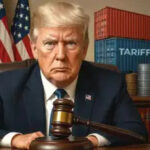This article is an on-site version of our FirstFT newsletter. Subscribers can sign up to our Asia, Europe/Africa or Americas edition to receive the newsletter every weekday. Explore all of our newsletters here
Good morning. Today we’re covering:
-
The launch of Apple’s AI iPhone
-
The deal to buy Japan’s most eccentric Hawaii-themed resort
-
The US presidential election debate
But we start with an exclusive story on PwC: the Big Four firm is set to parachute in a senior partner from the UK to run its China business, as the fallout from its audit of collapsed property developer Evergrande continues to mount.
The accounting firm’s global leaders have tapped Hemione Hudson, a runner-up in the race earlier this year to lead PwC UK, to lead the scandal-hit China business, according to people familiar with the matter.
Unlike traditional multinationals, PwC operates as a network of independent, locally owned partnerships, so the appointment of an outsider to take charge is a highly unusual step.
The intervention underscores the concern within the firm about the depth of the crisis at PwC China, which has told clients that it expects Beijing to impose a substantial fine and a six-month suspension of its operations as a punishment for failures related to its audits of Evergrande.
The move is also significant given the political sensitivity faced by western brands operating in the country and restrictions on sharing information across borders, even within businesses. Here’s what else to know about the leadership switch.
And here’s what else I’m keeping tabs on today:
-
Economic data: China publishes August trade figures and Malaysia reports manufacturing sales and its industrial production index for July.
-
Huawei’s new phone: The Chinese tech giant is set to unveil its triple-folding smartphone, the Mate XT, a day after Apple launched its latest iPhone. (Reuters)
Five more top stories
1. China’s producer prices slid in August, boosting fears that deflationary forces are taking root in the world’s second-largest economy. Last month’s fall in producer prices — 1.8 per cent year on year — was the most in four months, dragged down by steel, agriculture and other sectors. Here’s why economists are concerned.
2. Apple unveiled the iPhone 16 yesterday, which chief executive Tim Cook said was the first of its smartphones to be “designed from the ground up” for artificial intelligence. Here are the AI tools coming to the iPhone — plus more on the chip that makes it possible.
3. India’s Adani Group has warned Bangladesh’s new government that its backlog of overdue payments has become “unsustainable”, as the country falls $500mn behind on dues from a contentious power project. The costly deals negotiated under Sheikh Hasina have left the interim government “firefighting”, said the country’s top energy official.
4. Private equity group Fortress has agreed a $100mn deal to buy Spa Resort Hawaiians, Japan’s oldest and most eccentric hot springs resort which sits just 50km from the stricken Fukushima nuclear plant. The Fortress bid comes with plans to invest a further $70mn in upgrades to the Hawaiian-themed hotel, golf and waterslide complex — a favourite destination of Japanese families since the 1960s.
5. The US Department of Justice’s latest antitrust trial against Google began yesterday, with the DoJ accusing the company of running a massive ad tech monopoly that cut off potential rivals and drove up costs for publishers and advertisers in an attempt to maximise profits. The trial comes as the tech giant contends with a landmark loss in a separate justice department antitrust case against it over search.
-
More US news: Donald Trump is escalating his threats to increase tariffs on imports if he wins a second term in the White House, reviving fears of renewed trade wars that hit the global economy during his presidency.
The Big Read

Announced in 2019, the EU’s sprawling Green Deal climate law aims to reach net zero emissions by 2050 and rewire the bloc’s economy into one based on recycling, reuse and longevity. But it has also turned out to be a bureaucratic machine that has spawned reams of legislation that businesses are struggling to implement, or even understand.
We’re also reading . . .
-
US election: Kamala Harris badly needs a breakthrough in Tuesday night’s debate to restore momentum to her campaign, writes Gideon Rachman.
-
Payment fraud: New UK rules that oblige banks to compensate scammed customers are a missed opportunity to deal head-on with a rampant new kind of crime, writes Patrick Jenkins.
-
Car-free Olympics?: Los Angeles loves its cars, but ahead of the 2028 Olympics, the city has quietly become the leader in US public transport investment.
Chart of the day
Since the global financial crisis of 2008, home prices adjusted for inflation are up about 2 per cent in Europe and 25 per cent in Japan — but more than 50 per cent in the US, writes Ruchir Sharma.

Take a break from the news
From global conflicts to the climate crisis, it is hard to be optimistic about the world these days. But Sergei Guriev, dean of the London Business School, says there are reasons to be hopeful.

Additional contributions from Tee Zhuo and Melody Abike Adebisi





